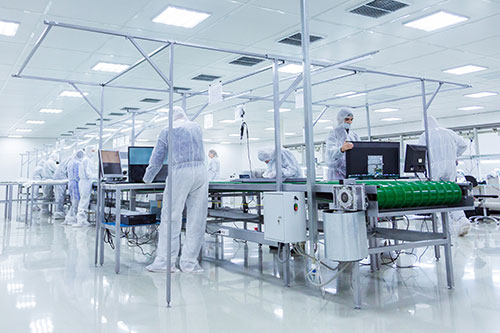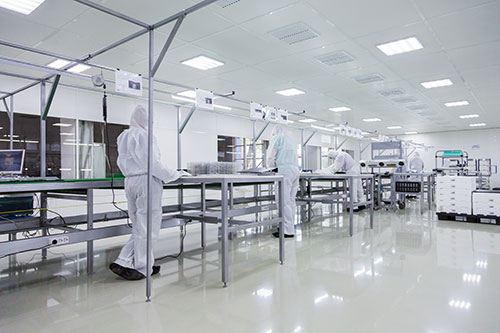The Crucial Role of HVAC Systems in the Pharmaceutical Industry
The pharmaceutical industry is an essential sector that produces drugs, vaccines, and other vital medical products for human health. As a highly regulated and sensitive sector, pharmaceutical manufacturing requires strict adherence to safety and quality standards. The HVAC system is one of the critical components that ensure the integrity of pharmaceutical products. HVAC systems play a vital role in maintaining the environmental conditions necessary for pharmaceutical manufacturing and storage.
HVAC systems are essential in the pharmaceutical industry for several reasons
- Maintaining Controlled Environments: They help maintain controlled environments that ensure product stability, safety, and quality. Pharmaceutical products are often sensitive to temperature and humidity; even slight changes in these environmental conditions can lead to degradation or loss of potency. HVAC systems provide precise temperature, humidity, and air pressure control, which are essential for maintaining the desired environmental conditions. These controlled environments help prevent contamination, degradation, and loss of potency of pharmaceutical products.
- Ensuring Compliance with Regulations: HVAC systems are critical for ensuring compliance with regulations. The pharmaceutical industry is highly regulated, and companies must comply with strict guidelines set by regulatory bodies such as the FDA. HVAC systems are required to meet specific standards and regulations to ensure the safety and quality of pharmaceutical products. These standards include Good Manufacturing Practices (GMP), Good Distribution Practices (GDP), and Good Laboratory Practices (GLP). HVAC systems must be designed, installed, and maintained to meet these standards to prevent regulatory non-compliance and ensure product safety and quality.
- Preventing Cross-Contamination: HVAC systems prevent cross-contamination of pharmaceutical products. In a pharmaceutical manufacturing facility, multiple products may be produced simultaneously, and each product may require different environmental conditions. HVAC systems ensure that each product is produced in a separate and controlled environment, preventing cross-contamination and ensuring product quality and safety. HVAC systems are also designed to provide adequate ventilation to the manufacturing facility, preventing the build-up of hazardous chemicals, dust, and microorganisms that can contaminate pharmaceutical products.
- Minimizing Downtime: HVAC systems help minimize downtime in pharmaceutical manufacturing facilities. Downtime in a pharmaceutical facility can be costly, as it can lead to the loss of valuable time and resources. HVAC systems require regular maintenance and monitoring to ensure that they are functioning correctly. By preventing downtime, HVAC systems can help ensure that pharmaceutical products are manufactured and delivered on time, maintaining customer satisfaction.
- Protecting Personnel: HVAC systems play a crucial role in protecting personnel. Pharmaceutical manufacturing can expose personnel to hazardous substances such as toxic chemicals, dust, and microorganisms. HVAC systems help protect personnel by controlling the quality of air in the manufacturing facility. By removing harmful particles from the air, HVAC systems help ensure the safety and health of personnel.
In conclusion, HVAC systems are critical components of the pharmaceutical industry. They help maintain controlled environments, ensure compliance with regulations, prevent cross-contamination, minimize downtime, and protect personnel. Without HVAC systems, pharmaceutical manufacturing facilities would be at risk of contamination, regulatory non-compliance, and loss of resources. By ensuring the safety, quality, and efficacy of pharmaceutical products, HVAC systems play a vital role in improving human health and well-being.

